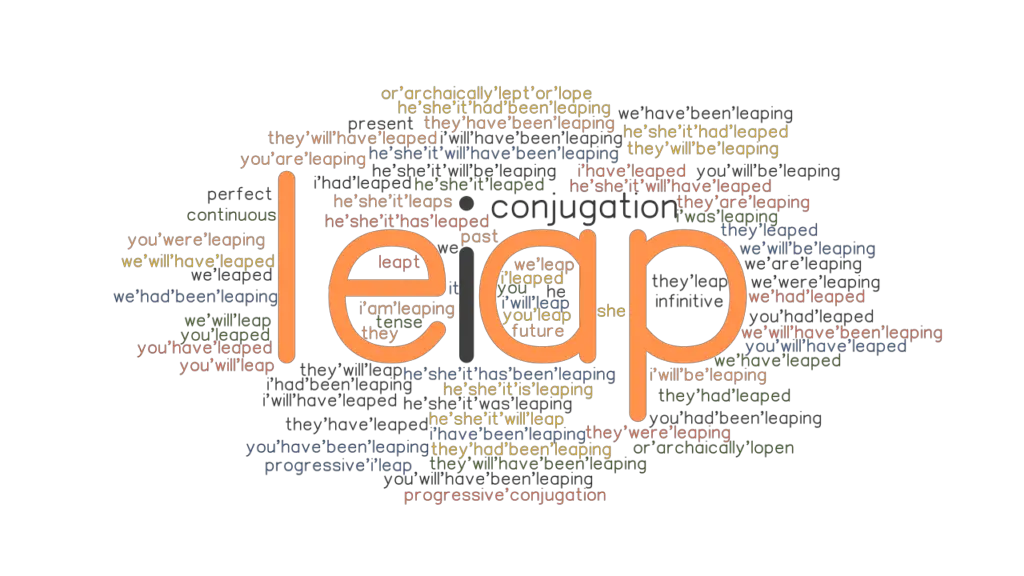
Leap Past Tense Verb Forms, Conjugate LEAP
verb ˈlēp leaped or leapt ˈlēpt also ˈlept ; leaping ˈlē-piŋ Synonyms of leap intransitive verb 1 : to spring free from or as if from the ground : jump leap over a fence a fish leaps out of the water 2 a : to pass abruptly from one state or topic to another the difficult leap from college to the workplace b : to act precipitately

Jump Past Simple, Simple Past Tense of Jump, Past Participle, V1 V2 V3 Form Of Jump When
Past participle leaped/leapt Model : obey / burn Auxiliary : have, be Other forms: leap oneself / not leap Contractions Advertising Indicative Present I leap you leap he/she/it leaps we leap you leap they leap Preterite I leaped/leapt you leaped/leapt he/she/it leaped/leapt we leaped/leapt you leaped/leapt they leaped/leapt Present continuous
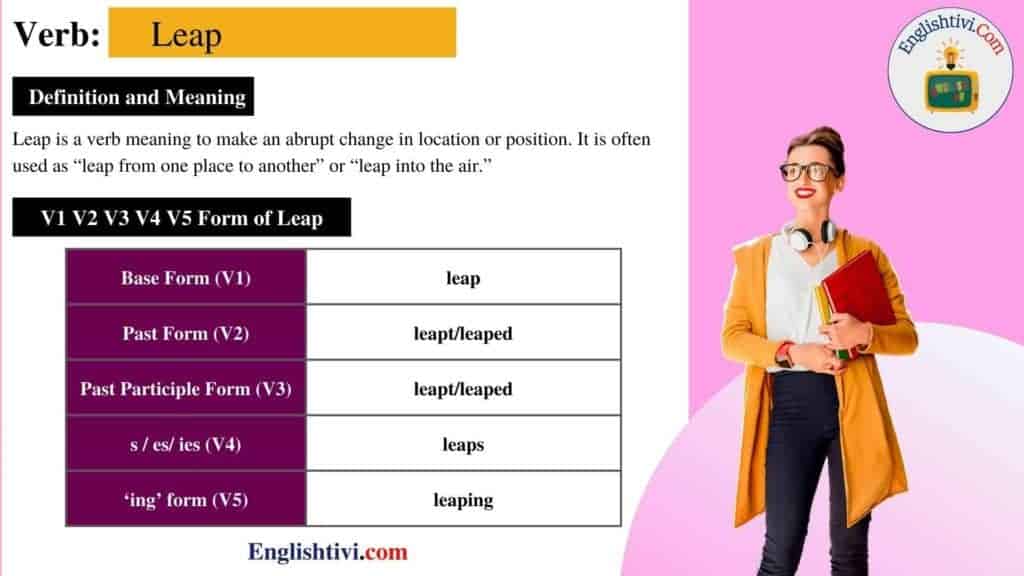
Leap Past Simple Simple Past Tense Of Leap Past
A: He leaped off the building. She leapt off the building. This may surprise you, but both "leapt" and "leaped" are acceptable past-tense and past-participial forms of the verb "leap." It's fine to use either one. According to Garner's Modern American Usage, traditionalists prefer "leapt," so if you want to keep the grammar curmudgeons happy.

Leap Past Tense Verb Forms, Conjugate LEAP
The past tense of the verb "leap" is "leapt", and the past participle is "leapt". Verb Tenses Past simple — leap in past simple leapt (V2) . Future simple — leap in future simple is leap (will + V1) . Present Perfect — leap in present perfect tense is leapt (have/has + V3) . Past Perfect — leap in past perfect tense is leapt (had + V3) .
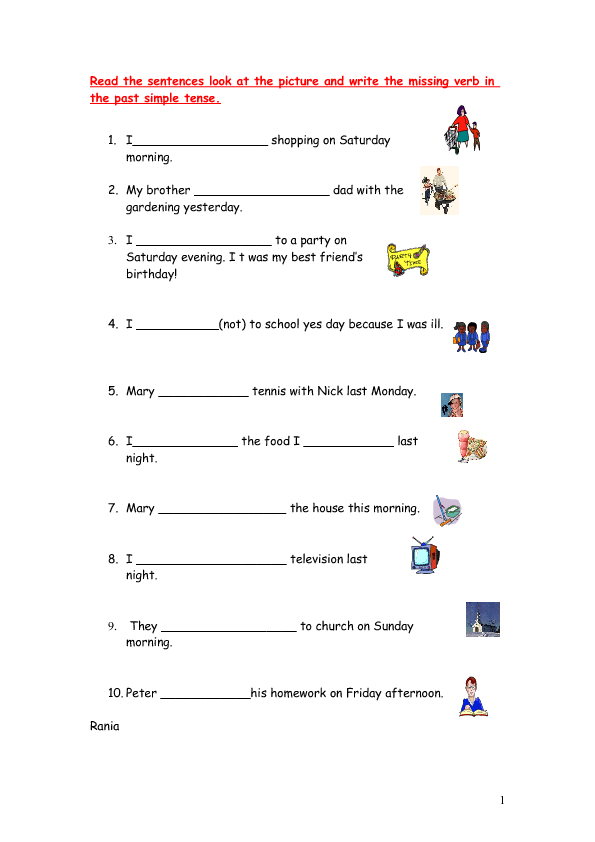
Leap Past Simple Simple Past Tense Of Leap Past
Past Tenses Present Tenses Future Tenses Most Common Irregular Verbs The two most common irregular verbs in English are "be" and "have." These pages give more details about these two verbs: the verb "to be" the verb "to have" Here are the next 10 most common irregular verbs in English: see, say, go, come, know, get, give, become, find, and think

Conjugation Leap 🔸 Verb in all tenses and forms Conjugate in past, present and future
leap. From Longman Dictionary of Contemporary English leap1 /liːp/ verb (past tense and past participle leapt /lept/ especially British English, leaped especially American English) 1 jump a) [ intransitive always + adverb/preposition] to jump high into the air or to jump in order to land in a different place She leapt over the fence.
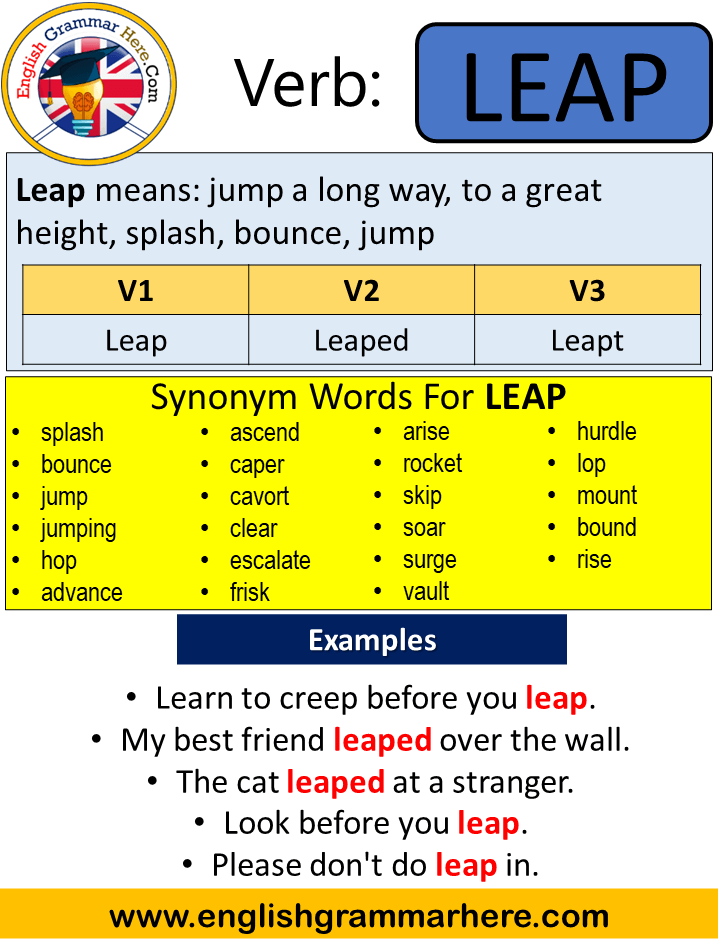
Leap Past Simple, Simple Past Tense of Leap Past Participle, V1 V2 V3 Form Of Leap English
The past tense of "leap" is "leaped" or "leapt." In American English, "leaped" is more common, while "leapt" is often used in British English. Both of them are considered acceptable and correct forms. You can check out the below table to learn more about other verb forms of leap: How To Pronounce "Leapt" And "Leaped" Correctly?

Past Tense of Leap ChasekruwSummers
Grammar Reference Irregular Verbs List Definition: To Leap Irregular verb: To Leap Verb conjugation: Leap - Leapt/Leaped - Leapt/Leaped Meaning of 'To Leap' To jump Conjugation of verb 'Leap' Irregular Verbs Following a Similar Pattern Verbs like: Subscribe to Ad-Free Browsing

Past Tense of Leap ChasekruwSummers
11 After reading this discussion, I'd like to know what example sentences distinguish the meaning of the words lept, leapt, and leaped from each other? differences tenses past-tense simple-past ed-vs-t Share Improve this question Follow edited Jan 22, 2013 at 21:06 RegDwigнt 97.1k 39 309 401 asked Jul 27, 2012 at 18:31 Dave Jarvis 513 2 4 18 6

Past Tense of Leap ChasekruwSummers
past tense of leap is leaped, leapt, or archaically lept or lope. Leap verb forms Conjugation of Leap Simple / Indefinite Present Tense He/She/It leaps . I leap. You/We/They leap. Present Continuous Tense He/She/It is leaping. I am leaping. You/We/They are leaping. Present Perfect Tense He/She/It has leaped, leapt, or archaically lopen.

Sentences with Leap, Past and Past Participle Form Of Leap V1 V2 V3
What's the Past Tense of Leap? Leaped or Leapt? December 24, 2022 Leaped and leapt are both correct past tense and past participles of the verb leap, (which is present tense). Last updated on November 2nd, 2023 at 04:02 pm Contents What's the past tense of leap? Leaped or leapt? Verb forms of leap Leap (present simple) used in context:
Past Tense Of Leap slidesharetrick
Both "leaped" and "leapt" are accepted past tense forms of "leap." American English typically uses "leaped," while British English prefers "leapt."; Understanding which form to use can depend on regional dialect and the context of writing.; While "leaped" conforms to the regular pattern of forming past tenses by adding the -ed ending, "leapt" is an irregular form.
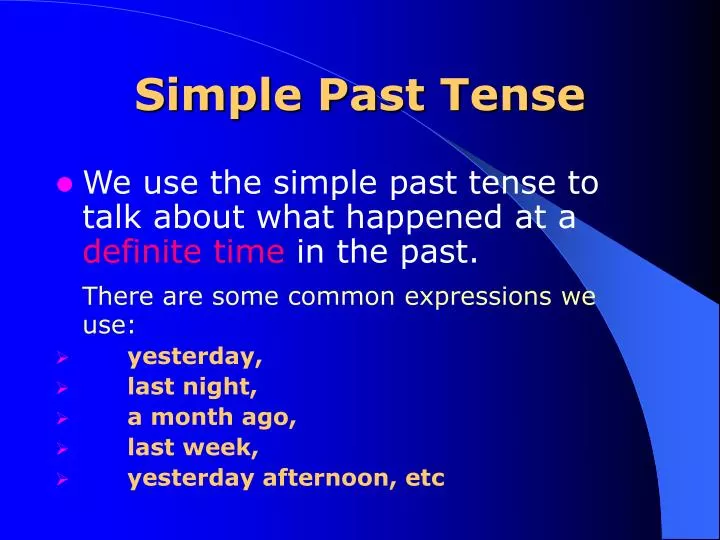
Leap Past Simple Simple Past Tense Of Leap Past
May 11, 2023 Leapt Vs. Leaped Similar Verbs Examples Quick summary Both leaped and leapt are correct forms of the past tense and past participle of the verb leap. They are both commonly used. Seeing a spooky ghost will make you leap right out of your shoes.

Past Tense Of Leap slidesharetrick
The past tense of "leap" can be spelled in two ways: "leaped" or "leapt." Both are correct, and they are used interchangeably. However, "leaped" is more commonly used in American English, while "leapt" is more common in British English. Here's a table that shows the conjugation of "leap" in the past tense: Examples:
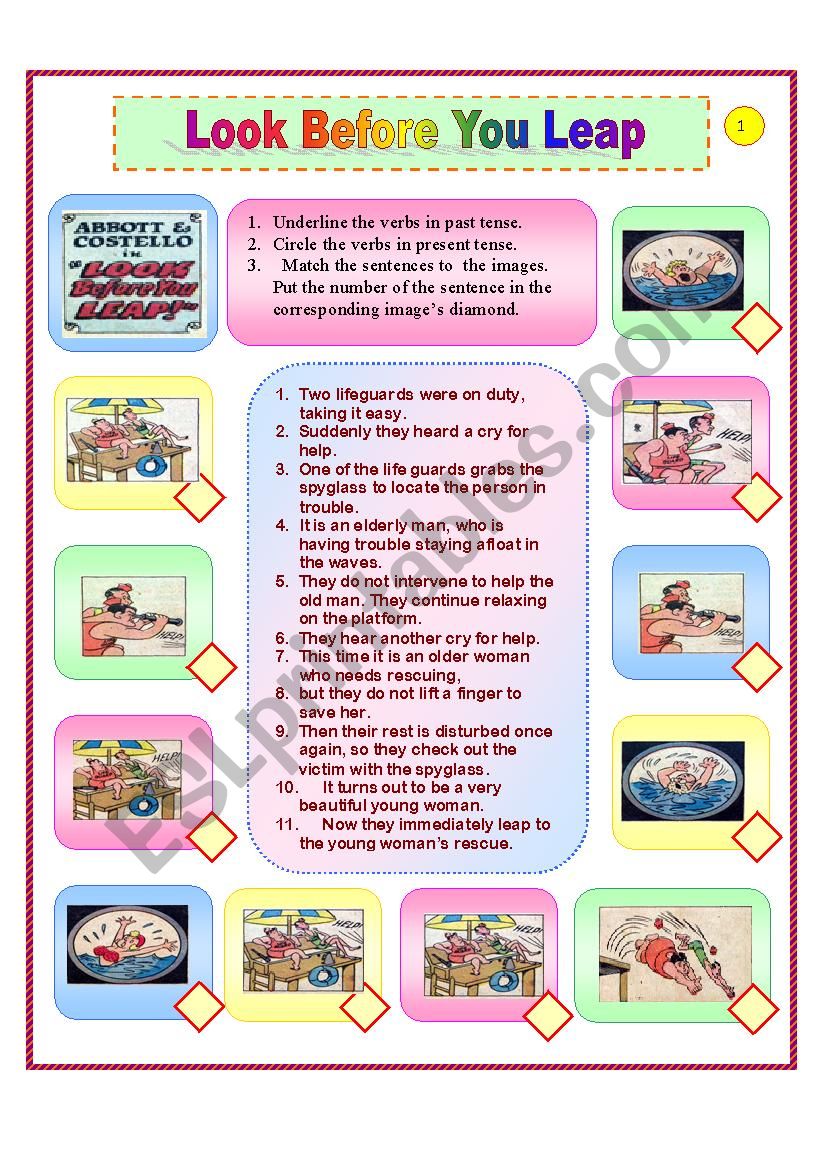
Past Tense Of Leap slidesharetrick
What's the past tense of leap? Here's the word you're looking for. Answer The past tense of leap is leaped US or leapt UK . The third-person singular simple present indicative form of leap is leaps . The present participle of leap is leaping . The past participle of leap is leaped US or leapt UK . Find more words! leap Similar Words jumped hopped

Leap V1 V2 V3 V4 V5 , Past Tense, Past Participle Form of Leap EnglishAwesome
Leaped is the past tense form of the verb leap, which means to jump, hop, or otherwise move quickly. It can be used in a literal as well as a figurative sense. For example, The second graders leaped out of their seats and ran to recess. Mulling over the clues in his head, Detective Schwarber leaped to a startling conclusion.